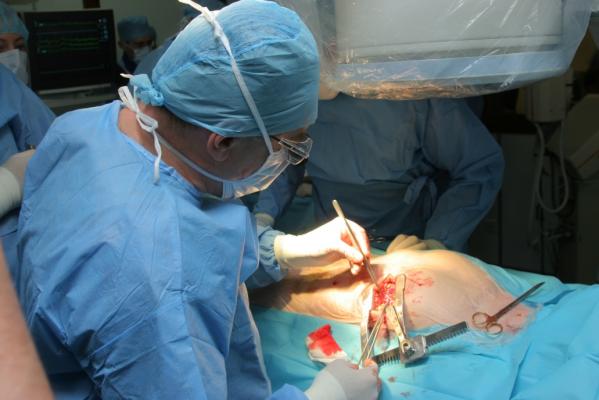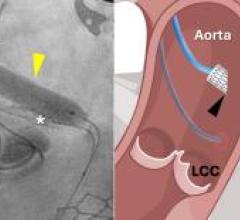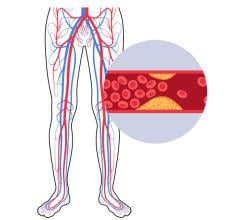
April 25, 2016 — Scientists have found that a greater number of patients with coronary artery disease may benefit from coronary artery bypass graft (CABG) surgery than previously thought. The study was funded by the National Heart, Lung, and Blood Institute (NHLBI) of the National Institutes of Health
CABG — a surgical procedure to help improve blood flow to the heart by bypassing arteries clogged with cholesterol plaques — was thought to be too risky for patients with the long-term effects of coronary artery disease: left ventricular dysfunction (when the left side of the heart is unable to pump normally) and heart failure. Studies of the safety and effectiveness of CABG in the 1970s excluded most patients with these two conditions. The procedure was typically used to relieve angina, or chest pain.
“With limited data showing any benefit for patients with left ventricular dysfunction and heart failure, physicians and patients were less likely to engage in such an invasive, and thus risky, procedure as CABG for diagnosis and treatment,” said lead author Eric J. Velazquez, M.D., FACP, FACC, FASE, FAHA, of Duke University Medical Center. “Patients with these conditions largely received medical therapy alone and had poor outcomes.”
Velazquez and his team conducted a five-year global, randomized controlled clinical trial, called the Surgical Treatment for Ischemic Heart Failure (STICH) study, and a five-year extension study (STICHES), to evaluate whether CABG plus guideline-directed medical therapy had a durable benefit over medical therapy alone for patients with coronary artery disease and left ventricular dysfunction. The researchers found that CABG added to medical therapy led to significantly lower rates of death and hospitalization among patients with coronary artery disease, left ventricular dysfunction, and heart failure.
“Our results usher in a new era in the treatment of coronary artery disease because we now have evidence that with CABG and medical therapy, there is a 16 percent reduction in the risk of death from any cause over 10 years,” Velazquez said.
He added that there is also a median survival benefit of nearly a year and a half, and that he and his team saw that the addition of CABG to medical therapy prevented a death from any cause for every 14 patients they treated. Their data further suggest that the reduction in the risk of death could be even greater in real-world practice.
“Conducting this trial was critically important to determine in a scientifically rigorous study that CABG improves survival for individuals with coronary artery disease and compromised left ventricular function,” said NHLBI Director Gary H. Gibbons, M.D. “The current 10-year follow-up provides new important insights about patient subgroups that are more likely to benefit from CABG as compared to medical therapy alone. As such, we now have a solid evidence base to inform patient care and the future development of clinical practice recommendations.”
Velazquez noted that the results are particularly important because the prevalence of left ventricular dysfunction and heart failure is expected to increase to approximately 8 million individuals by 2030 in the U.S. alone. The increase in the projected prevalence is a result of advances in the management of cardiovascular disease and its risk factors, increasingly transforming coronary artery disease into a chronic disease with long-term effects such as left ventricular dysfunction and heart failure.
George Sopko, M.D., MPH, the program director in NHLBI’s Division of Cardiovascular Sciences who administered the study grant, added that this investigation, published in The New England Journal of Medicine (April 2016), is one of only a few cardiovascular trials with 10 years of follow-up and with approximately 98 percent of the patients followed throughout the study period.
“It is unusual to have this quality of follow-up for so long,” said Sopko. “It speaks to the rigor of the results.” He added that the results are very generalizable, as the study included a diverse patient population spread across 22 countries and various health systems.
For more information: www.nejm.org


 January 15, 2026
January 15, 2026 









